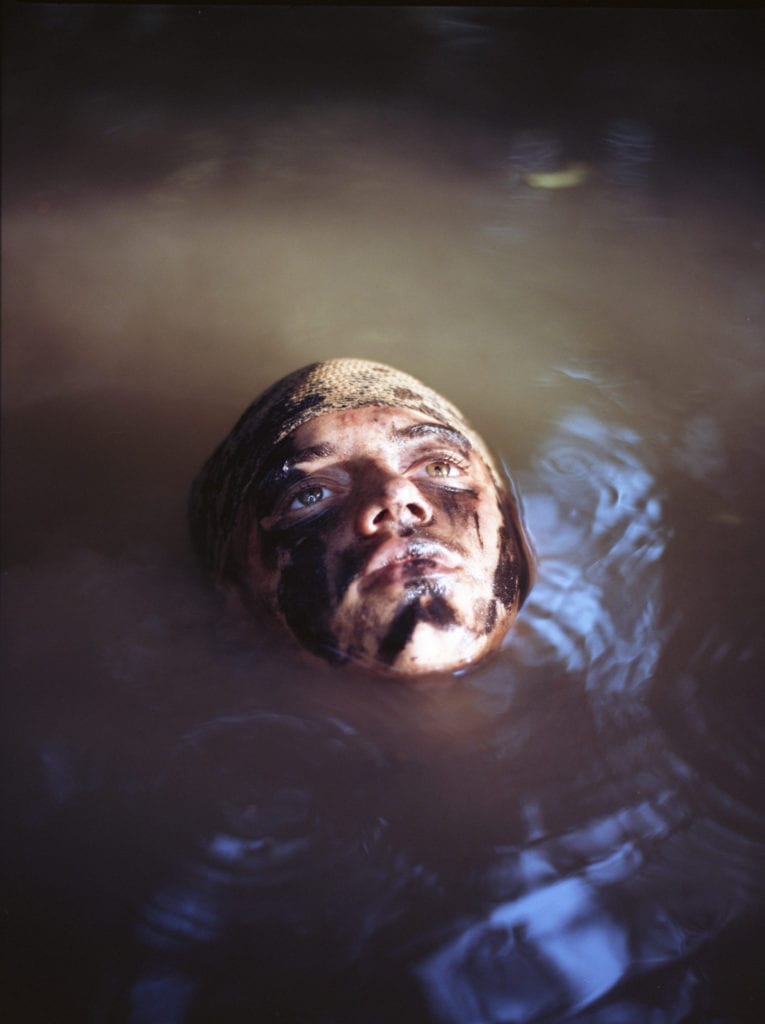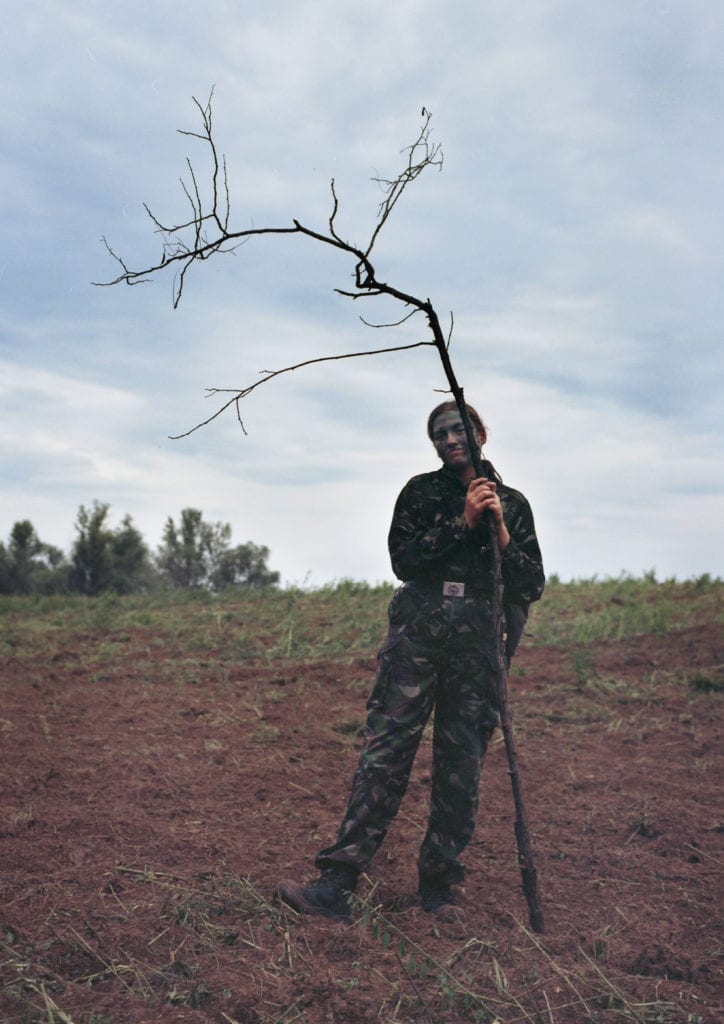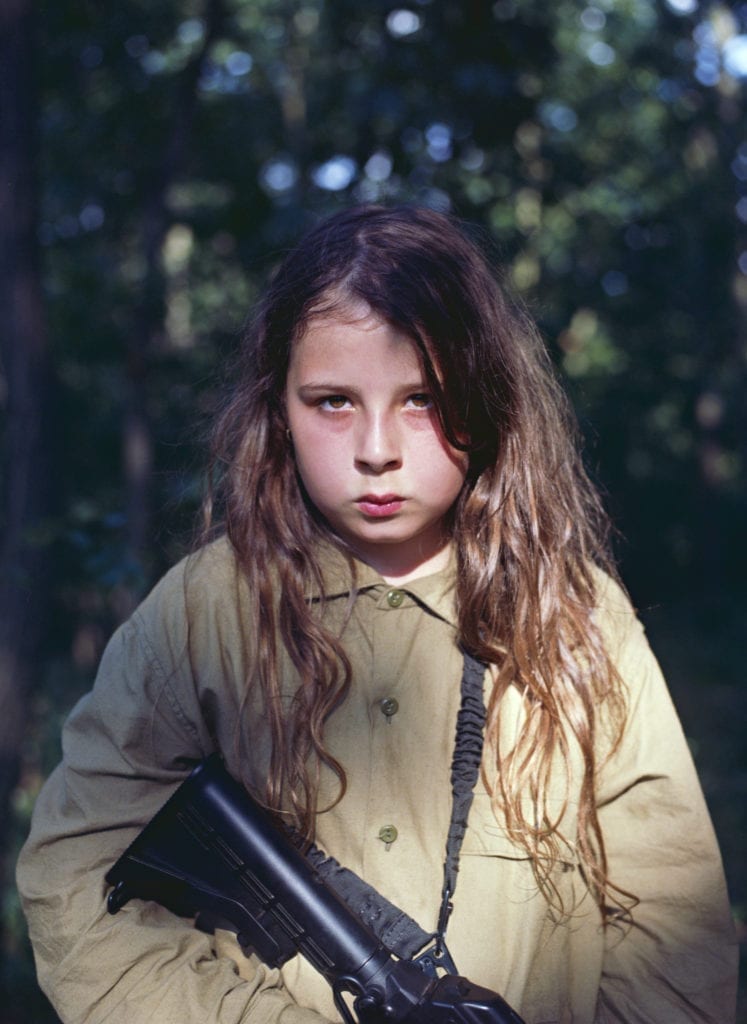“I’m a pacifist,” says Máté Bartha of his views on the military. “I don’t think violence is necessary, but it does interest me.” For a year and a half, Bartha has photographed summer camps organised by the Hungarian NGO Home Defence School, an institution committed to teaching discipline, patriotism and camaraderie to teenagers in a society that they believe has become slothful and disconnected. Last week, Bartha’s series Kontakt, won the annual Louis Roederer Discovery Award for emerging photographers at Les Rencontres d’Arles.
“There is a lot of discussion in Hungary about the military and obligation,” explains Bartha. Since 2016, the question of conscription has been at the forefront of public conscience, and is heavily debated by Hungary’s right-wing Conservative government, but according to Bartha, the organisers of these military camps attempt to resist politics. “They say they don’t want to get involved in politics,” says Bartha. “They believe that the younger generation is undisciplined, and that young people don’t appreciate basic values. This military approach is what they believe is missing from education.”
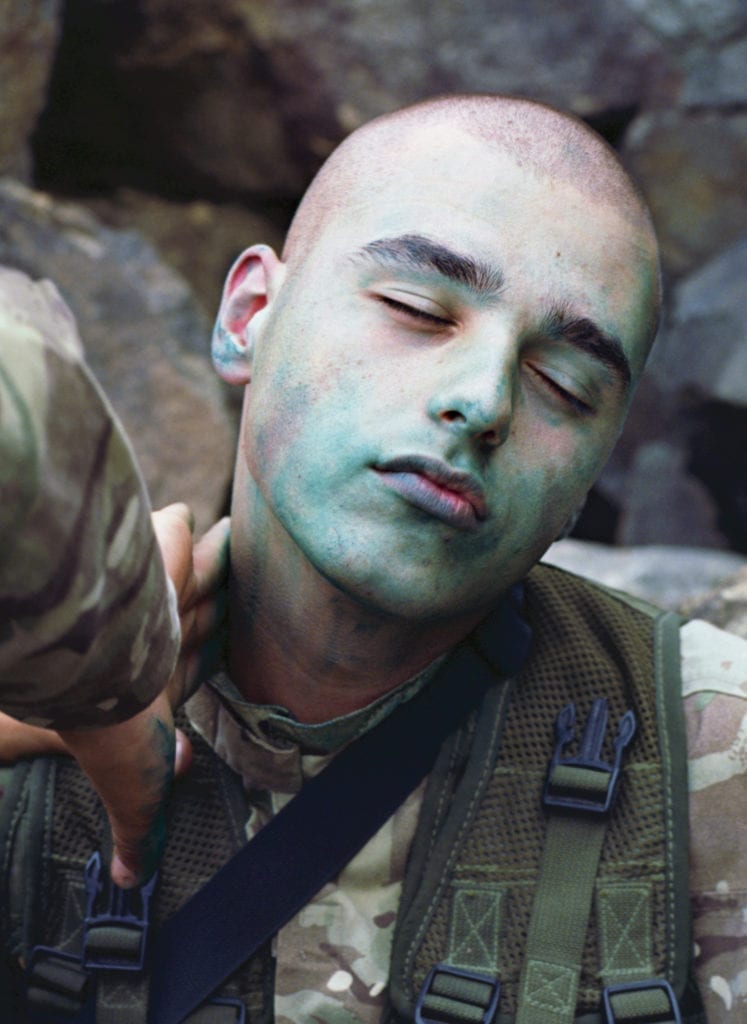
As someone whose views on violence staunchly differ from those of the camp organisers, Bartha has found it difficult to remain objective when making the work. “I had to keep a distance,” he says. “Because otherwise I would become emotionally involved in the particular stories of the children there, many of whom come from difficult backgrounds.” Bartha acknowledges that for some of the children, the camps provide an empowering, positive space. “I arrived at the project prepared for something very uncomfortable and scary, and I had lots of preconceptions, but I tried to stay as open as possible,” he explains
The photographs themselves encompass portraiture and landscape. They are posed images, which differ from traditional styles of reportage, but maintains Bartha’s typical approach when making work, “I try to keep as far away as I can from reportage,” explains Bartha, “which I think gives the work a more timeless feel.”
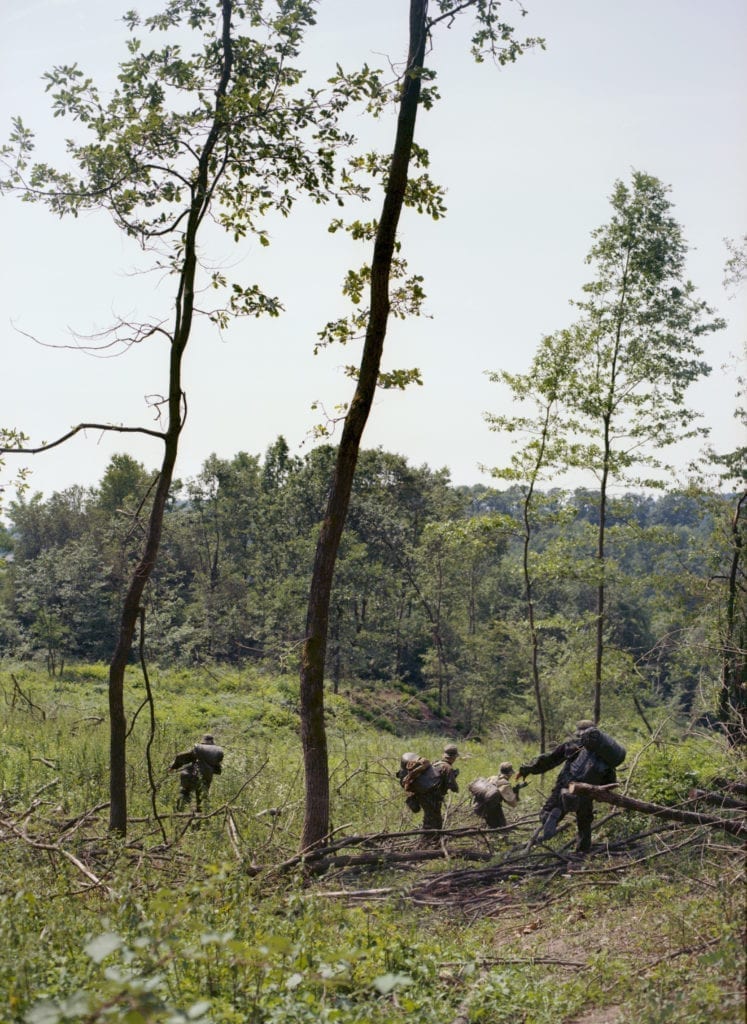
In the camps, the teenagers sleep in tents, light fires, sing and hike together. “It is like roleplay,” Bartha says of the military aspects of the experience. The camp leaders teach the usage of air-soft weapons, and they command strict military discipline, but the camps are also a way for teenagers to be away from home, and to spend time with the opposite gender. The nature of the camps is perplexing; the teens are taught to build strong communities and create friendships, but at the same time are made to do push-ups for punishment.
Bartha remains ambivalent about the camps, which shows in the work. The photographs are still and peaceful. In one image, members of the group huddle together closely, but with bags covering their heads. In another, a boy closes his eyes as he is painted green for camouflage. Throughout the series, moments of tenderness are mingled with something more sinister, and the purpose and of these military camps remains purposefully ambiguous.
Kontakt by Máté Bartha is on show at Ground Control at Les Rencontres d’Arles until 22September 2019
barthamate.com
